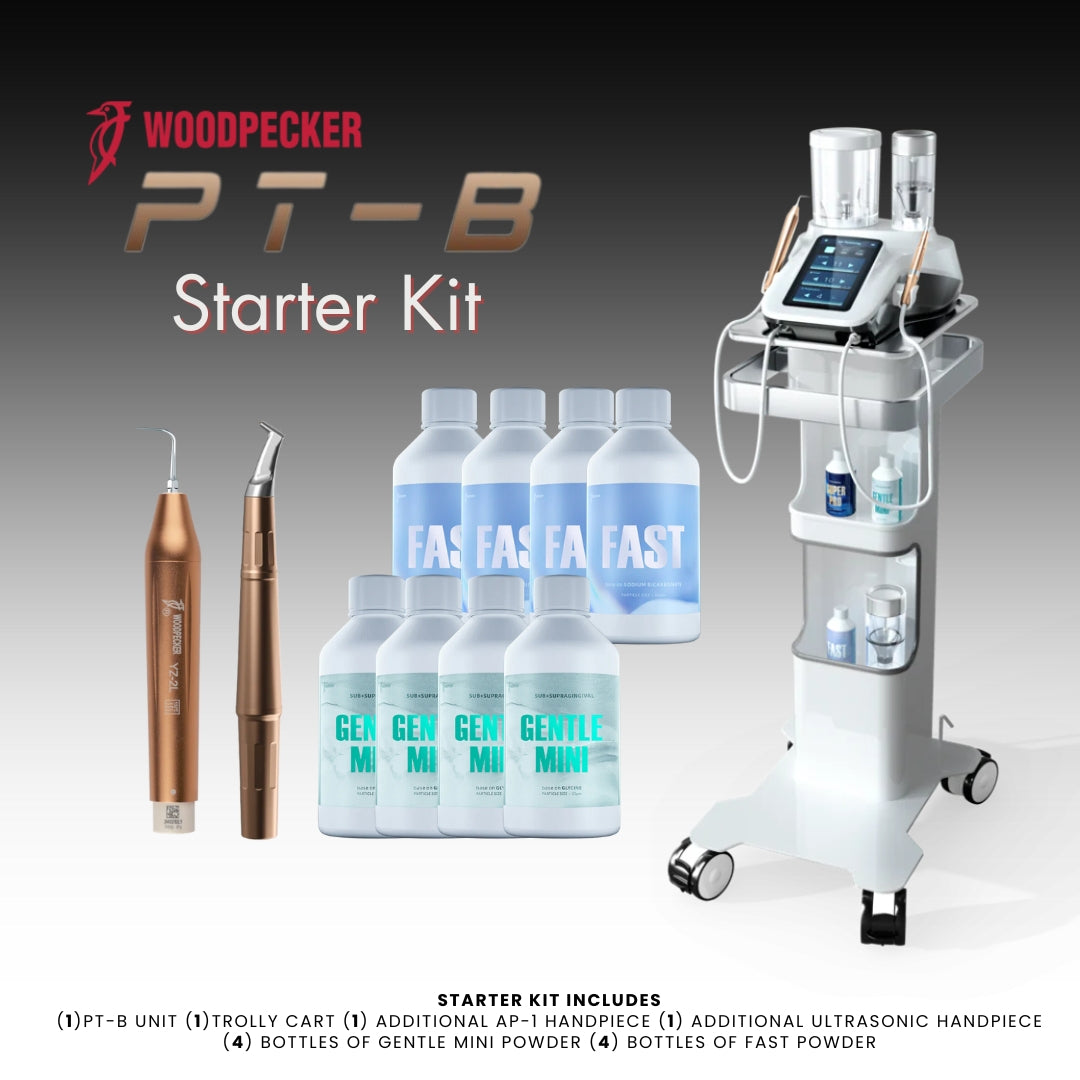How the ABC Protocol Improves Hygiene Efficiency
Modern hygiene care is shifting toward minimally invasive and biofilm-focused treatment. One standardized approach gaining attention is the ABC Protocol, which stands for:
-
A — Assess
-
B — Biofilm Removal
-
C — Clean
This protocol supports predictable, comfortable, and efficient hygiene care.
A — Assess
The first step is identifying where biofilm is present using disclosing agents, mirrors, and magnification.
Benefits of Assessing:
-
More precise treatment planning
-
Better patient communication
-
Visualized hygiene goals
-
Reduction of unnecessary scaling
B — Biofilm Removal
The second step uses an air polishing device to remove biofilm based on the assessment.
Why Air Polishing First?
-
Removes biofilm and stains before scaling
-
Saves time
-
Gentler on enamel and tissue
-
Reaches recessed or crowded areas
-
Excellent for orthodontics and implants
C — Clean
Only after biofilm is removed do clinicians perform ultrasonic scaling where calculus remains.
This reduces trauma, improves patient comfort, and makes the final cleaning more precise.
How the ABC Protocol Enhances Workflow
1. Faster Appointments
Most soft deposits are removed in the biofilm removal step.
2. Better Clinical Outcomes
Ultrasonic scaling is more effective when surfaces are free of biofilm.
3. Reduced Tissue Trauma
Less pressure and less scraping.
4. Improved Patient Satisfaction
A smoother, gentler hygiene experience.
5. Higher Productivity
More efficient appointments = more patients per day.
Devices That Support the ABC Protocol
The Woodpecker PT-B integrates:
-
Air polishing
-
Ultrasonic scaling
into one streamlined hygiene device, making it easy for clinics to adopt the ABC workflow.
Conclusion
The ABC Protocol offers a predictable and minimally invasive method for hygiene care. By organizing the workflow into Assess, Biofilm Removal, and Clean, dental teams can significantly improve efficiency and patient comfort.

